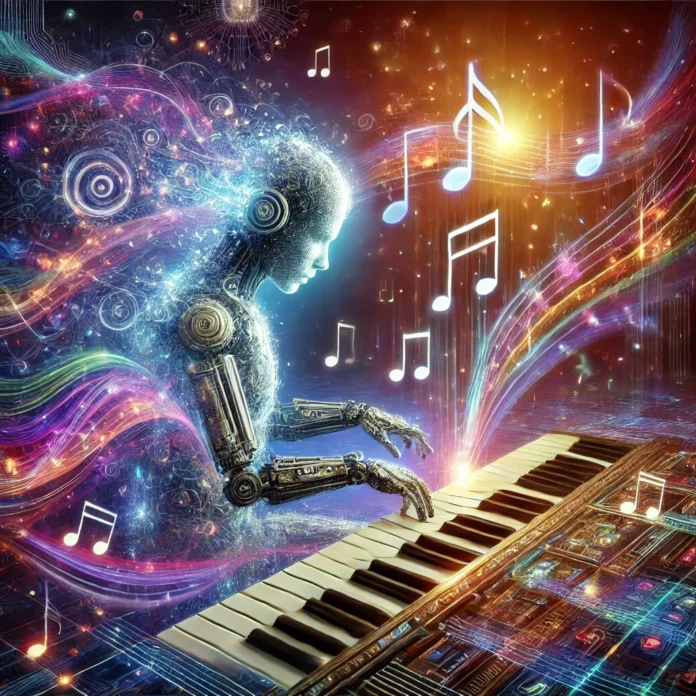Music, often described as the language of emotion, has long been considered a uniquely human art form. With the advent of Artificial Intelligence (AI), however, the boundaries of musical creativity are being redefined. AI-generated music, created by algorithms trained to compose, arrange, and even perform, is gaining prominence in industries ranging from entertainment to therapy. But can machines truly master the emotional depth that defines music, or are they simply imitating human expression?
How AI Creates Music
AI-generated music relies on machine learning models, such as neural networks, to analyze and replicate musical patterns. These systems are trained on vast datasets of songs, enabling them to identify structures like melody, harmony, and rhythm.
- Composition: Tools like AIVA (Artificial Intelligence Virtual Artist) compose original music by drawing inspiration from classical composers or contemporary genres. AIVA has been used for video game soundtracks and advertisements, showcasing its versatility.
- Arrangement: AI systems like Amper Music assist musicians in arranging tracks by suggesting instrumentations, transitions, and effects.
- Performance: Technologies like Yamaha’s AI pianist simulate live performances, interpreting sheet music with expressive nuances.
Applications of AI-Generated Music
1. Entertainment Industry
AI is transforming music production in films, games, and commercials. By creating royalty-free soundtracks, tools like Ecrett Music offer cost-effective solutions for content creators.
In gaming, AI-generated music adapts dynamically to gameplay, enhancing immersion. For example, AI can modify the tempo and mood of a soundtrack in real-time to reflect a player’s actions or the storyline.
2. Personalized Playlists
Streaming platforms like Spotify and Apple Music use AI to curate playlists based on user preferences. These algorithms analyze listening habits to recommend tracks that resonate with individual tastes, creating a deeply personalized music experience.
3. Music Therapy
AI is making strides in music therapy, where tailored compositions are used to alleviate stress, improve focus, and support mental health. For instance, apps like Endel generate soundscapes designed to promote relaxation or productivity, blending neuroscience with AI capabilities.
The Creativity and Emotion Debate
AI’s ability to compose technically proficient music raises questions about creativity and authenticity.
Proponents argue that creativity is not exclusive to humans but rather a process of combining existing ideas in novel ways—something AI does exceptionally well. AI systems often produce unexpected results, pushing the boundaries of traditional music.
Critics, however, contend that AI lacks the emotional experiences and intent that underpin human compositions. While an algorithm might replicate a sad melody or joyful harmony, it does so without understanding the feelings it evokes, leading some to question its artistic value.
Challenges and Ethical Considerations
AI-generated music also introduces ethical dilemmas. Issues like authorship and intellectual property are complex—who owns the rights to a piece composed by an algorithm? Additionally, the rise of AI tools could disrupt the livelihoods of composers and musicians, raising concerns about automation in the arts.
Conclusion
AI-generated music is redefining the way we create and experience sound. While machines may not yet fully grasp the emotional nuances of music, they offer powerful tools for collaboration and innovation. As technology evolves, the relationship between human and machine creativity will continue to shape the future of music, blending technical precision with artistic expression.





